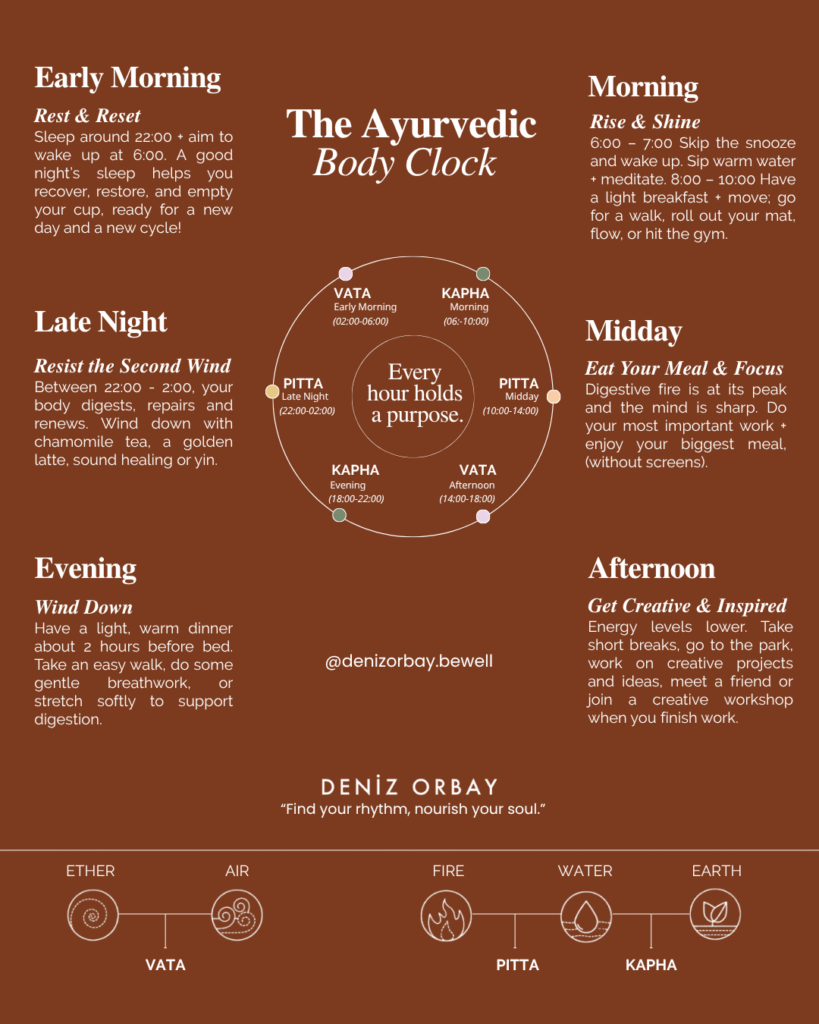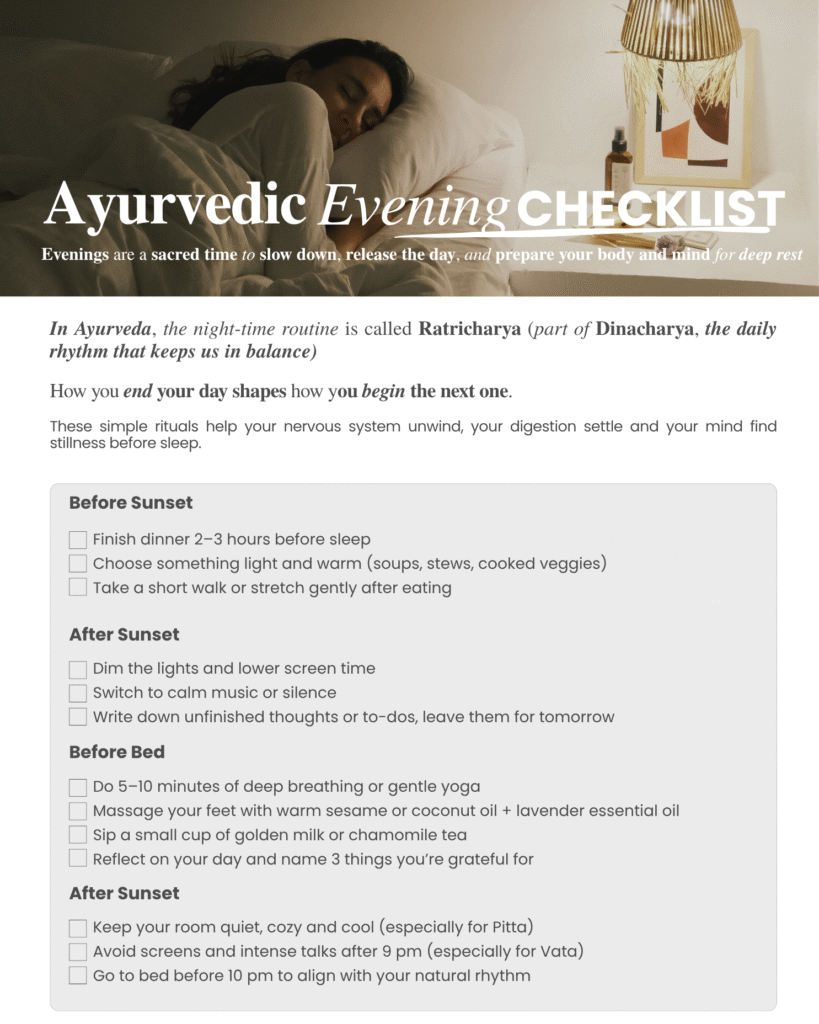The Art of Slowing Down: Ayurvedic Night Routines for Better Sleep
Your morning actually begins the night before. How you end your day shapes how you wake up physically, mentally and emotionally.
We talk a lot about how we start our mornings — the 5 AM Club, morning meditations, lemon water rituals, cold plunges and journaling before the day begins.
But what about your evenings?
Are they getting the same kind of love and attention?
Evenings are not just about “shutting down.” They’re a sacred space, a transition between doing and being.
In Ayurveda, this time is called Ratricharya, part of the daily rhythm (Dinacharya) that helps us stay in balance.
As the sun sets, your energy naturally turns inward. According to the Ayurvedic Body Clock, 18:00 to 22:00 is a grounding, calming phase that prepares you for sleep.
Then, between 22:00 and 02:00, the body enters its most active repair cycle: cleansing, digesting, and regenerating, but only if you’re asleep. The body begins its work of repair digestion slows, tissues rebuild and emotions integrate the day.
It’s the invisible part of healing, the space where rest becomes renewal. If we stay awake through these hours scrolling, working or overthinking, the body misses its most powerful healing window.

That’s why when you sleep matters just as much as how long you sleep.
Evening routines are simply about telling to your body: “It’s safe to slow down now.”
Here are a few simple ways to do that:
– 2–3 hours before sleep: eat something light and warm.
– 1 hour before: dim the lights, lower the noise and leave screens aside.
– 30–45 minutes before: sip a soothing tea or give yourself a gentle abhyanga (self-massage) with warm oil.
– 10 minutes before: journal for a few minutes “What am I truly grateful for today?”
Then, lie down by 22:00, even if you don’t fall asleep right away.
Your body loves rhythm. When you create consistency around sleeping, eating and resting, your nervous system learns to trust again and that’s when real rest begins.
Ayurvedic Night Routines for Better Sleep: Ayurveda teaches that each dosha struggles with sleep in different ways and understanding yours can transform how you sleep.
- Vata: Light sleepers who find it hard to switch off; find your mind racing, full of thoughts, ideas and to-dos. You need grounding, warmth and routine.
Ritual + Night-Time Elixir: A gentle oil massage + Golden Latte (Download VATA 101 for the recipe) - Pitta: Fall asleep easily but often wake up in the night, overheated or overthinking. You need to cool & calm down.
Ritual + Night-Time Elixir: Cool your space and a few gentle forward folds + Licorice or Rose Tea - Kapha: Deep sleepers who tend to feel heavy or sluggish in the mornings. You need lightness, movement and early sleep.
Ritual + Night-Time Elixir: Light dinner and a short walk after eating + Ginger or Tulsi Tea
< Take the Mind-Body (Dosha) Quiz to find out your type & create your bedtime routine for better sleep! >

Just start with one or two habits and notice how your evenings begin to soften!
And if you want to go deeper; understanding your sleep patterns, energy cycles or dosha-specific habits you can book a free 30-minute discovery session where we’ll explore how to bring more calm and rhythm into your nights.
[Book your session here.]
Final Reminder!
Your evenings are not the end of your day, they’re the beginning of your next one! Slow down, unplug and make your nights sacred again.
Love & Kindness,
Deniz




